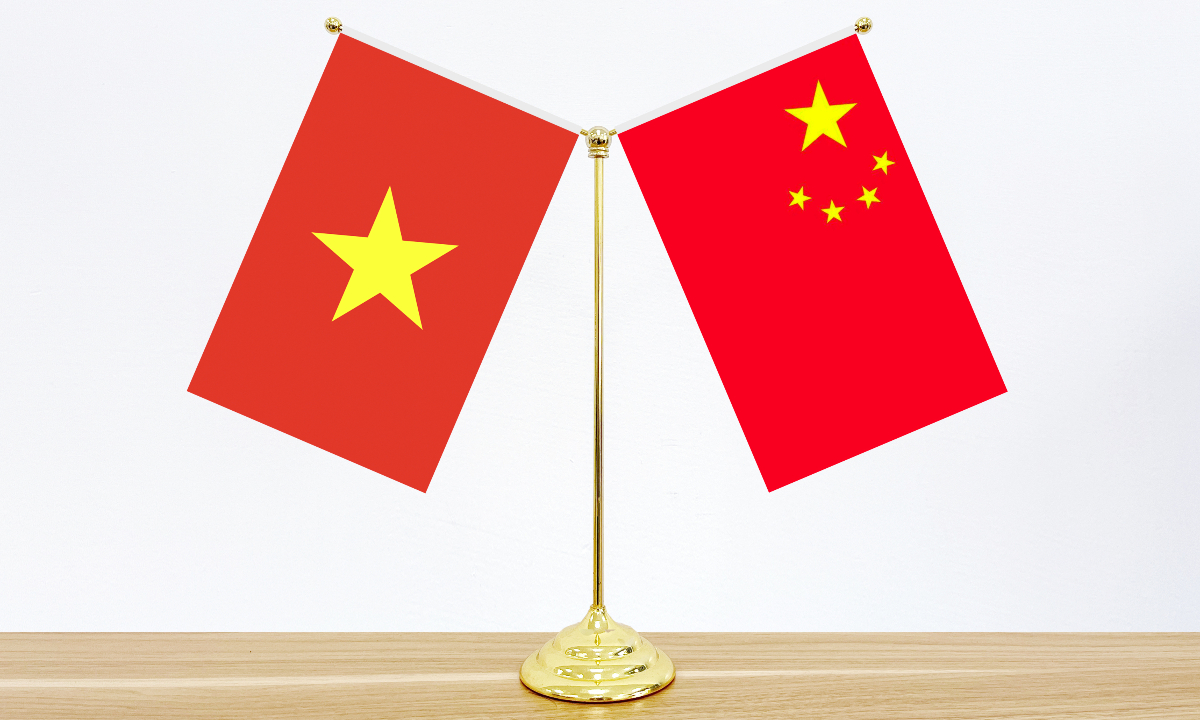China, Vietnam vow to manage differences to avoid complications in South China Sea

China Vietnam Photo: VCG
China is willing to work with Vietnam to uphold dialogue and consultation to manage differences, advance practical maritime cooperation, accelerate negotiations on the "Code of Conduct in the South China Sea," and avoid actions that could complicate or escalate the situation, said Chinese Premier Li Qiang during his meeting with Vietnamese Prime Minister Pham Minh Chinh, who was on an official visit to China on Monday.
The Vietnamese side firmly adheres to the One-China principle and actively supports participation in the Belt and Road Initiative and global development initiatives, Pham noted, saying that Vietnam is willing to deepen cooperation with China in the fields of economy, trade, investment, culture, and other areas, while strengthening multilateral coordination and cooperation, effectively managing differences, and achieving shared prosperity.
Prime Minister of Vietnam Pham Minh Chinh is paying an official visit to China from June 25 to 28 and will attend the World Economic Forum's Annual Meeting of the New Champions 2023 in Tianjin.
The two sides agreed to maintain and develop bilateral relations, jointly advance the cause of socialism, join hands to build an even closer community of shared future, further deepen the comprehensive strategic cooperative partnership between Vietnam and China, and inject more stability and positive energy into world peace and development.
"China's development has made important contributions to regional and world stability and prosperity, and Vietnam is willing to work with China to manage the phases well and jointly maintain maritime peace and stability," Pham remarked.
However, tensions between China and the US have yet to see an immediate de-escalation after US Secretary of State Antony Blinken's visit to China, and have caused some instability in the regional situation.
The Ronald Reagan carrier strike group, which made a rare port call in Vietnam on Sunday, has been operating in the South China Sea since last week after completing joint exercises with Japanese, French and Canadian vessels in the East China Sea and the Philippine Sea.
Chinese Foreign Ministry spokesperson Mao Ning on Monday expressed hope that the development of relations and exchanges and cooperation between relevant countries will be conducive to promoting peace, stability and prosperity in the region.
On maritime issues, the sides also exchanged in-depth views and reached a consensus on the importance of properly managing differences in the South China Sea and maintaining peace and stability.
The two sides strictly implement the high-level consensus of the two countries and relevant agreements, Pham noted, adding that the two countries should respect each other's legitimate rights and interests, resolve disputes and differences by peaceful means consistent with international law, including the 1982 United Nations Convention on the Law of the Sea (UNCLOS), and effectively implement the Declaration on the Conduct of Parties in the East China Sea (DOC).
Li said China is willing to work with Vietnam to practice genuine multilateralism, strengthen coordination and cooperation in the United Nations and other multilateral institutions, and deepen cooperation within the China-ASEAN and Lancang-Mekong River frameworks.
Both sides also agreed to speed up border standard-gauge railway connectivity, and promote port opening and upgrading and facility connectivity. They will also expand cooperation in agricultural trade, investment and energy, and open more direct flights and increase exchanges in cultural tourism and education.
After the talks, the two prime ministers jointly witnessed the signing of a number of bilateral cooperation documents on maritime cooperation, market supervision and port construction.
Global Times

